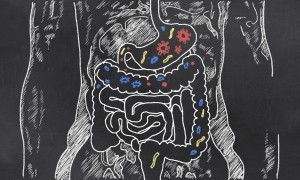NutraIngredients-USA Global Round-up: Increasing B2 production, Amway in India, and more

This week we look at DSM boosting its production of riboflavin (vitamin B2), Amway’s “digital first” approach to India, and results of new microbiome study from India.
First up, Dutch ingredients giant DSM announced it is expanding its vitamin B2 production capacity at its facility in Grenzach, Germany. This 15%-20% increase in production capacity is in response to growing demand from food and dietary supplements.
“We have made huge progress in consolidating and expanding our position in water-soluble B vitamins, specifically B2, in particular through technological advances in this area,” said a company spokesperson.
“We are constantly investing in the expansion and modernization of existing plants, to increase capacity and to deliver best-in-class tailor made solutions for our customers. With annual organic growth of 5%, many plants are reaching maximum capacity.”
“Digital first”
Next up we look at Amway’s “digital first” approach to India. Direct selling is India's fastest-growing non-store retail format and has experienced more than 20% year-on-year growth until recently. And analysts predict the industry will reach a value of US$8.96bn in the country by 2025.
However, the pace of growth for direct selling has slowed over the past five years, and the total number of direct sellers in India fell from 5.8 million in 2013 to four million in 2016.
In response, the industry is turning to e-commerce: To deal with the challenges posed by e-commerce firms that offer direct-sales products at lower prices than the direct sellers themselves, distributors for direct selling companies are now selling items online through retailers such as Amazon and Flipkart.
According to Amway India CEO Anshu Budhraja, the company's e-commerce activities account for nearly 35% of its revenue, which is expected to rise significantly in future.
Amway India plans to invest around US$13.9 million in growth over the next two to three years, including $9.7 million in R&D for product innovation, $2.8 million - 4.2 million in digital initiatives appeal to younger buyers, and $1.4 million in manufacturing for plant automation and power optimization, all part of its $139 million investment in India alone.
Microbiome insights
We stay in India for our last news of the week: Data from a recent study indicated that altitude and geography have a significant impact on the gut microbiome.
This was based on findings from residents in three different communities in North India: 49 individuals residing in sea-level Ballabhgarh in Haryana — in both the rural and urban areas — and 35 individuals residing in the rural high-altitude town of Leh in Ladakh. Ballabhgarh is located 228 meters above sea level, while Leh is at 3,500 meters.
Researchers found that the gut microbiome of people from Leh, their gut microbome was reported to be contain high level of Bacteroidetes and low level of Proteobacteria.
On the other hand, those living in both the urban and rural areas of Ballabhgarh were found to have a higher abundance of Firmicutes and Proteobacteria, enhanced by microbial xenobiotic degradation pathways, meaning they were better equipped to remove environmentally harmful compounds from the gut.
The researchers concluded: "In the present study, a detailed analysis of the gut microbiome of healthy Indians clearly reflects the Firmicutes-dominated microbiota in the Indian subjects living in two distinct geographical locations.
"Further analysis revealed distinct microbial signatures in each region. The minimal representation of Proteobacteria in the gut of (the) Leh population is very attractive, and represents a potential source of healthy gut microbiota in faecal microbiome transplantation-based therapeutics.
"Although all three groups had healthy individuals, (the) rural community from a low-altitude area (Ballabhgarh) had a unique microbiome characterised not only by higher diversity, but also a higher degree of homogeneity within the same cohort.
"The insights from the current findings thus have high translational value, considering the identification of ideal subjects as donors for faecal microbiome transplantation."
Source: Das et al., Scientific Reports, 8, Article number: 10104 (2018)











